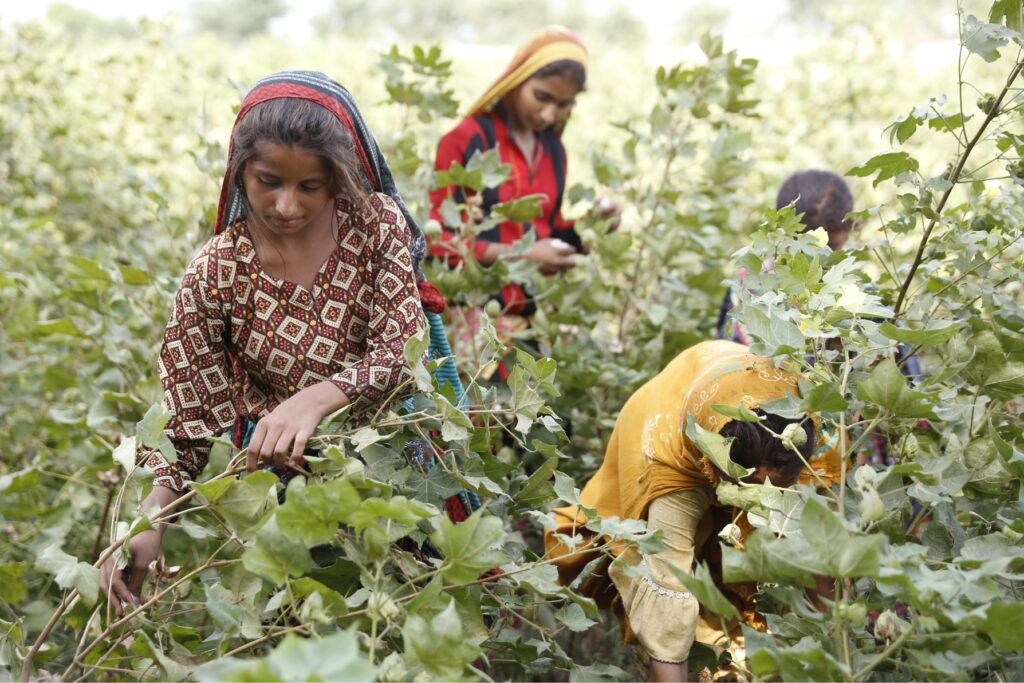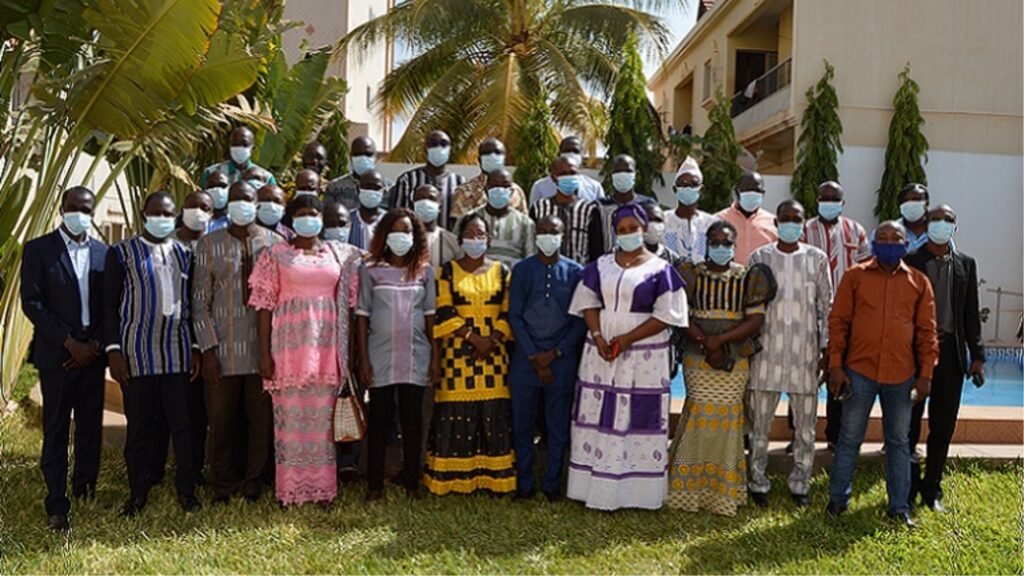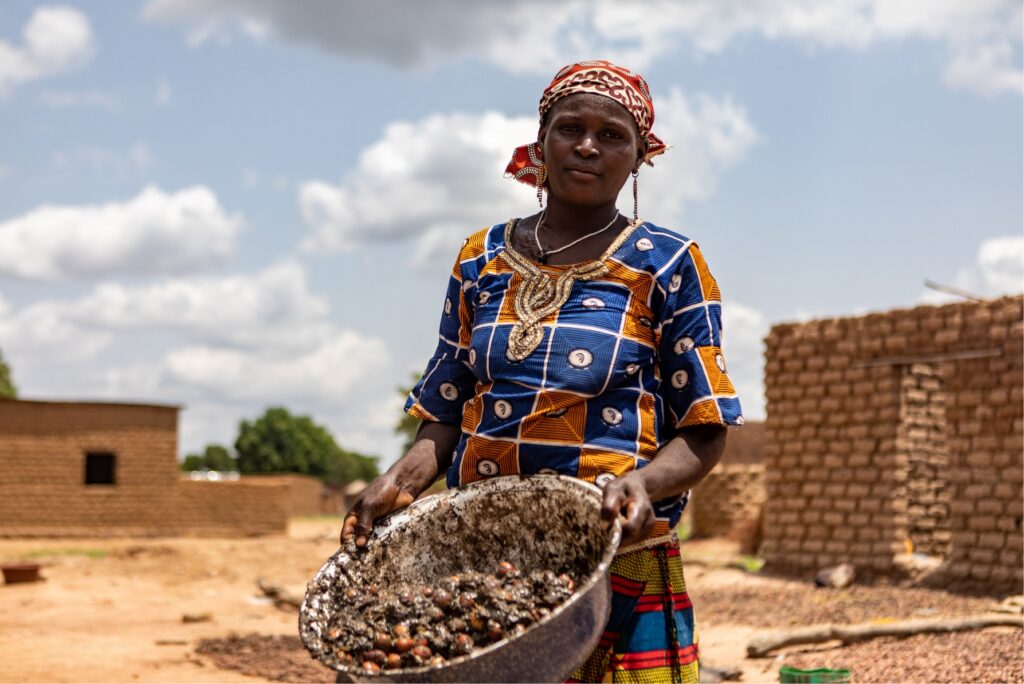SECTION 1
Eradicating child labour through stronger policy and legislation, and improved research
Overview
From the policy perspective, in Mali and Burkina Faso, the CLEAR Cotton project supported the development of National Action Plans (NAPs) to end child labour.
Such NAPs are instrumental in bringing key partners together to work towards ending child labour at the country level. NAPs also provide a mechanism of governance by tracking progress and holding stakeholders accountable.
On research, the project conducted studies in all four project countries to inform and drive action. The project also contributed to the development of a number of targeted studies, including studies on cotton producers’ cooperatives and fundamental principles and rights at work in Mali and Burkina Faso.
This section focuses on the example of the Mali and Burkina Faso studies on evaluating the needs of cotton cooperative producers in terms of fundamental principles and rights at work.
Results at a glance
In Mali, a new National Action Plan for the Elimination of Child Labour (PANETEM) was developed in 2022.
In Burkina Faso, the Operational Action Plan 2022-2023 of the National Strategy Against the Worst Forms of Child Labour (SN/PFTE) was adopted in 2021.
In Pakistan, a National Action Plan on Business and Human Rights with specific components on child labour and forced labour was developed.
In all countries, several targeted studies were produced.

Strengthening legislation and developing National Action Plans
Cotton production is crucial to national economies and the sustenance of many families all over the world, but at the lower tiers of the cotton value chain which often involve informal and small-scale production, child labour remains prevalent. Not only does child labour rob children of their rights to a secure and happy childhood, it often prevents them from going to school.
The CLEAR Cotton project aimed to change the status quo by eliminating child labour and forced labour in cotton production and creating a more sustainable system.
In Mali, the project supported the development of a new National Action Plan for the Elimination of Child Labour (PANETEM). Through an agreement with the National Unit to Fight Against Child Labour (Cellule Nationale de Lutte contre le Travail des Enfants, CNLTE), 5 regional consultations took place to take stock of the previous National Action Plan and consider solutions needed to address specific regional and local contexts. The new National Action Plan was then drafted and reviewed at a high-level consultation held in March 2022 with representations from the National Directorate of Labour, the CNLTE, and relevant Ministries (Labour, Children Promotion, Education, Agriculture, Social Development, Social Protection).
“The new PANETEM is the result of an inclusive process that mobilized all actors in the fight against child labour. Public authorities, social partners as well as civil society organisations […] The exercise has enabled our country to draw up an action plan for the next five years (2023-2027). This plan has 10 priorities under two sections, which are devoted respectively to the creation of a socio-economic and legal environment conducive to the elimination of child labour and the strengthening of the effectiveness of actions for the protection and rehabilitation of children in child labour.”
Mr Amadou Thiam, Director of the National Unit on the Fight Against Child Labour, Government of Mali

In Burkina Faso, the project supported the Ministry of Public Service, Labour and Social Protection in developing its new Operational Action Plan for 2022-2023 for the implementation of the National Strategy against the Worst Forms of Child Labour 2019-2023 (Plan d’action opérationnel de la Stratégie Nationale contre les Pires Formes de Travail des Enfants, SN-PFTE).
The Action Plan aims to operationalize the National Strategy to Combat the Worst Forms of Child Labour through several actions based on the Strategy’s main pillars on prevention, protection, rehabilitation and reintegration. Actions will include, amongst others, the revision of the decree of the list of hazardous occupations forbidden to children, the expansion of community child protection units and child protection networks, and the reinforced control of workplaces with a high risk of the worst forms of child labour occurring.
The Action Plan was developed through a participatory approach involving the regional labour and social protection directorates. It was adopted in December 2021 by the National Strategy’s Coordination Committee. In the Boucle du Mouhoun region (called “the granary of Burkina” because of the importance of its agricultural activities), the project also contributed to the development of a regional action plan to combat child labour as well as a communal development action plan to combat child labour in the commune of Ouarkoye.
The key pillars of these action plans include awareness raising in the most affected sectors (cotton production and gold mining), the reinforcement of the monitoring and repression of cases of violation identified, as well as support for the reintegration of identified victims.

In Pakistan, labour legislation has been placed under the jurisdiction of each province. The project contributed to the ILO Country Office’s nationwide efforts to bring provincial labour legislation in line with International Labour Standards.
In Sindh, the project supported the implementation of the Sindh Bonded Labour System (Abolition) Act, 2015 and the Sindh Bonded Labour System (Abolition) Rules, 2021, working with the Department of Labour Sindh (DoL), the District Administration Department, police, judiciary and media to activate and build the capacity of 18 District Vigilance Committees (DVCs) against child labour. The project also contributed to the development of the National Action Plan on Business and Human Rights (2021-2026) which aims to provide a national framework for implementing the UN Guiding Principles on Business and Human Rights (UNGPs) and address the adverse human rights impacts resulting from business activity.

Research to inform and drive action
In Mali and Burkina Faso, the project conducted studies to assess the knowledge of cotton cooperatives on Fundamental Principles and Rights at Work (FPRW) with a focus on child labour and forced labour, and determine their needs to contribute more effectively to the promotion and respect of FPRW within the cotton value chain.
In both countries, surveys were conducted with the support of partners. The findings included an analysis of how cooperatives are respecting and implementing the International Cooperative Alliance’s seven cooperative principles. The studies outlined recommendations and actions to be taken to promote both the application of the cooperative principles and the respect for FPRW. The studies for Mali and Burkina Faso were discussed, amended and validated with relevant stakeholders, including national cooperative federations.
In the context of the project, a number of other (unpublished) studies were carried out to help inform project activities. For example, in Pakistan, a study was carried out by the Punjab Economic Research Institute (PERI) to explore the nexus between the intra-household gender division of labour and potential impacts on child labour. FAO went on to produce a policy brief based on this study entitled “Gender roles related work burden and child labour in agriculture in Punjab.”
The project in Pakistan also produced a number of other unpublished reports, including a socio-economic assessment of cotton growing communities, in cooperation with INDITEX and the World Wide Fund for Nature (WWF), and supported the Employers’ Federation of Pakistan (EFP) to conduct a rapid assessment of the ginning and spinning sector.
WANT TO KNOW MORE?
- Government of Burkina Faso: Workshop on the implementation of the National Strategy 2019-2023 on the worst forms of child labour [2021] (in French).
- Government of Burkina Faso: Approbation of the three-year action plan in the Boucle du Mouhoun region [2021] (in French)
- Government of Burkina Faso: Approbation of the communal action plan for the Commune of Ouarkoye [2021] (in French)
- Government of Burkina Faso: Approbation of the second Operational Plan for the National Strategy on the worst forms of child labour – SN/PFTE [201] (in French)
- ILO Burkina Faso: Implementation of the child labour policy by the Regional Directorates of Labour and Social Protection [2020] (in French)
- European Union INTPA: Empowering women and girls to end child labour (2021)
- ILO Mali: Need assessment of cotton cooperatives of Mali in terms of Fundamental principles and rights at work [2022] (in French)
- ILO Burkina Faso: Need assessment of cotton cooperatives of Burkina Faso in terms of Fundamental principles and rights at work [2022] (in French)
